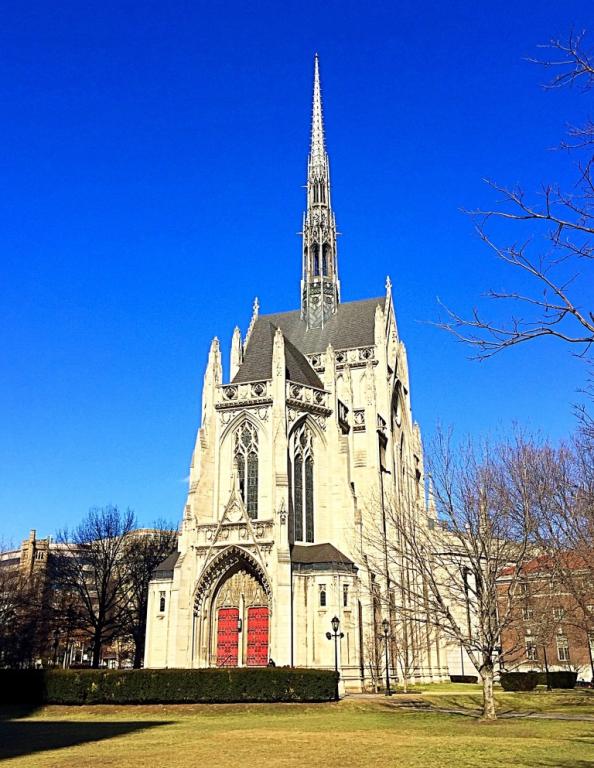Originally published at the Washington Institute for Faith, Vocation, and Culture.
There were times this week I felt like I was walking through the day trying to repair the world. One morning I put on worn-out jeans and painted in my son David’s house in Anacostia. After some years of dreaming and working in that neighborhood, he is selling his house. A horrible mess when he bought it, completely full of junk and garbage everywhere, he slowly made it new, renovating it from top-to-bottom. He hopes to put it on the market in the next few days, and so he has been working on it, getting it ready, and I wanted to help.
I had planned to come home, get cleaned up, and then go to my afternoon meeting at the headquarters of a global corporation that I consult with. But painting “one last section” kept me longer, and I decided to just go “as is.” It was okay, as we met offsite in a restaurant that didn’t mind.
This company makes things that people all over the world enjoy, by the billions of dollars worth. For years now I have worked with them on rethinking the way that business is done, in fact the way that economic life is ordered, and as the months pass that work only becomes more intriguing and complex. Some time ago I offered my colleagues there the vision of “tikkun olam,” a long-ago Hebrew way of describing our vocation as human beings to step into history “to repair the world,” seeing ourselves as responsible for the way things turn out. For years I have been intrigued by what the image means, and what it assumes.
Most of us see the sorrows and horrors of life, and groan. Things are not the way they are supposed to be. But “supposed to be” makes assumptions. There are really only a few ways of seeing life that can make sense of “supposed to be.” Not all ideas are equal; they just can’t be. Not all stories tell the same story; how could they?
For example, drawing on the analysis of my favorite philosopher/poet, Bono of U2, who sees “karma” written into most ways of making sense of life and the world– whether the materialism of the West (“I am my DNA, and therefore the wiring has already been done… and I have no responsibility”) or the pantheism of the East (“The fates have already decided what is and will be… and therefore I have no responsibility”) –he argues that without “grace” we are stuck, metaphysically and morally… in moments we cannot get out of. And that’s a problem.
To speak of repairing the world assumes that we see some things as “wrong.” But if what is, is right, then what is wrong? Nothing, really. Personal preference matters, but not very much. At the end of the day, what I like bumps up against what you like—and anyway, “It is what it is.” Whether a broken house or a broken economy, things are as they are—after all, what is, is right.
But human beings that we are, there is something in us that cries out. We do groan. We do sigh. We do protest. And sometimes, we long for something more, maybe even for the way “things are supposed to be.”
More could be said, of course, especially about the reality that every effort at repairing the world costs us. We will get hurt, because it is very messy, and never neat-and-clean. To take up the wounds of the world will wound us.
This week I went further up and further in to the vocation of “tikkun olam,” a calling that belongs to all of us, sons of Adam and daughters of Eve that we are. The vision makes sense of the brokenness of life, of everyone’s life, of life for everyone—whether my son’s house or my colleagues’ business, whether your hope or the heartaches of neighbors a world away. We yearn for things to be made right, for life to be as it could be, as it might be, as it should be—as it is supposed to be.













